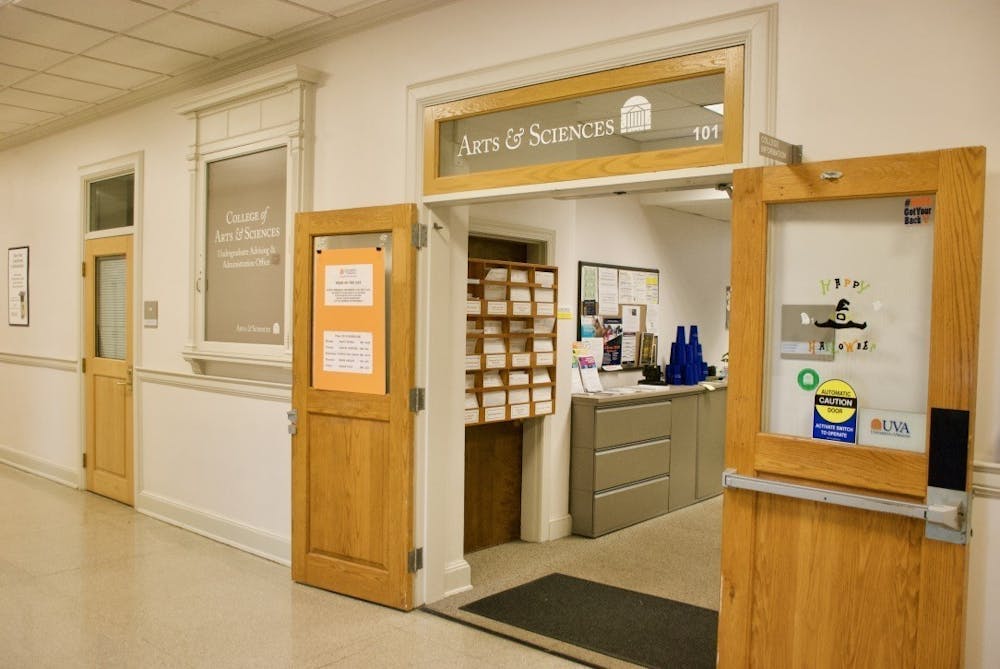Lea en español
When the University sent students home in March of last year, the University administration quickly reacted by changing the University’s grading policy. Due to the unprecedented impact of COVID-19 and the rough transition that would come from switching classes to an online format, the University decided that it was only fair to give students the option to take courses either for a letter grade or credit/no credit.
“In seeking to fulfill our academic mission, our guiding principles are clear: We will work to protect our University community and our neighbors, and we will do all we can to continue educating our students and pursuing our research,” the University stated in an email to students. “The effort to sustain our educational mission has required enormous effort and creativity by thousands of faculty and staff. As we launch tomorrow into our rapid transition from in-person to online instruction for the remainder of this semester, I am writing to provide direction on how we will handle grading for undergraduate students.”
This was met with both great enthusiasm and disagreement. While some students were worried about how graduate schools would interpret this, others thought it should be a blanket credit/no credit option and indeed, many students simply worried about the deadline for picking a grading option. Nevertheless, the University — along with many schools — held steady and allowed students to make their own decisions on the matter.
With the pandemic still in full swing, the University continued with virtual instruction for the summer semester. However, unlike the spring, the administration decided to transition back to normal grading options. Students no longer had the option to take classes — which, like the spring semester, were entirely online — as credit/no credit.
In response, students rushed to protest and created petitions, calling on the University to not only change its grading policy, but also to reduce the price of tuition for summer courses. However, the University did not respond to either request and classes were graded as normal, despite remaining online and despite students being unable to return to Grounds.
It is impossible to deny the fact that students were still facing difficult circumstances during the 2020 summer session as they had been only months earlier. The reasons for switching the normal grading system remained the same — some students did not have good access to the internet, held jobs to make ends meet or were confronted with a difficult home life. In fact, the University reverted to a grading option of credit/no credit option for the 2020-2021 academic year – even the University's J-Term had a credit/no credit option.
One could even argue that students had it easier during the 2020-2021 academic year, as they were allowed to return to and live on Grounds. Yes, things were still hard, but at least the vast majority of students had access to a decent internet connection and an adequate place to study. The same could not be said for students during the 2020 summer session, as they did not have this option to return to Grounds.
There is no difference between what students went through in the spring of 2020, the summer, the fall and now into the next year. People are still dying, there is still a global pandemic, unemployment is still at a record high and many students are still struggling simply to make ends meet. Mental health, in particular, is a struggle for many students at the University during normal years, and that challenge is only magnified by strict social distancing restrictions and mandatory isolation periods. It is impossible to deny the fact that students who are forced to stay in their apartments for days — even weeks — at a time without social interaction will only see their mental health worsen. While CAPS has moved online, it has a history of being overrun and overworked, and this reality is only getting worse as students continue to struggle. If the University really cared about its students and the academic community that it promotes, it would provide the students who took courses this past summer with the option to retroactively elect for a credit/no credit grading option.
Devan Coombes is an Opinion columnist for The Cavalier Daily. She can be reached at opinion@cavalierdaily.com.
The opinions expressed in this column are not necessarily those of The Cavalier Daily. Columns represent the views of the authors alone.







